Understanding Sick Building Syndrome: Is Your House Making You Sick?
Are you feeling unwell even in the comfort of your own home, without a clear explanation? You might be experiencing "sick building syndrome" (SBS). Health experts have coined the term "sick building syndrome" to describe acute symptoms that arise exclusively during time spent in a particular building, whether it's your home or office, yet cannot be attributed to any specific illness. Understanding this syndrome is vital for maintaining optimal health and wellness, as it highlights the significant impact of indoor environments on our overall well-being.
Following are the symptoms of Sick Building Syndrome that may be silently affecting your health and wellness:
Sick Building Syndrome is likely caused by a combination of factors that could affect your home environment:
Understanding and addressing these factors is crucial for creating a healthier home environment and reducing the risk of Sick Building Syndrome.
Prioritize the quality of your indoor air by implementing the following measures to reduce contaminants and pollutants within your home.
Regular maintenance of your HVAC system is crucial to prevent sick building syndrome, ensuring it operates efficiently and remains free of contaminants. Proper AC cleaning and maintenance play a vital role in maintaining a healthy indoor environment.
Ensure your home receives regular professional deep cleaning services. While standard cleaning addresses routine tasks, deep cleaning targets overlooked areas to eliminate hidden dust accumulation, allergens, and impurities. Select deep cleaning services cautiously, opting for eco-friendly cleaning agents to promote healthy living and reduce the risk of Sick Building Syndrome.
Regular professional cleaning of carpets, upholstery, and mattresses is essential to reduce allergens and pollutants that can contribute to Sick Building Syndrome. Upholstery often harbors pet dander, mold spores, and other triggers, impacting indoor air quality. Professional cleaning refreshes fabrics, eliminates odors, and minimizes allergen exposure. Mattresses, prone to dust mites and bacteria, can worsen asthma, allergies, and fatigue if not maintained. Keeping these areas clean promotes better sleep and supports healthy living.
Unchecked mold growth poses a serious threat to indoor air quality and can gradually become a health hazard. Mold thrives in environments with water leaks, high humidity, poor ventilation, temperature fluctuations, moisture buildup, and neglected AC units or ducts. Professional mold removal and remediation help ensure a clean and healthy home environment.
Regular pest control at home effectively reduces exposure to germs and allergens. While DIY methods may appear convenient, they can exacerbate infestations and expose you to harmful chemicals. Opting for professional, eco-friendly solutions addresses pest issues at their source, ensuring thorough eradication without compromising your health and well-being.
Identifying key indoor air pollutants in your home, such as carbon dioxide, carbon monoxide, and volatile organic compounds (VOCs) is crucial to maintaining healthy indoor air. Understanding the origins of these indoor air issues, from insufficient ventilation to sources like combustion, building materials, and toxic household products, is crucial for preventing Sick Building Syndrome. Conducting indoor air quality testing provides precise assessments and empowers informed decisions to enhance indoor air quality.